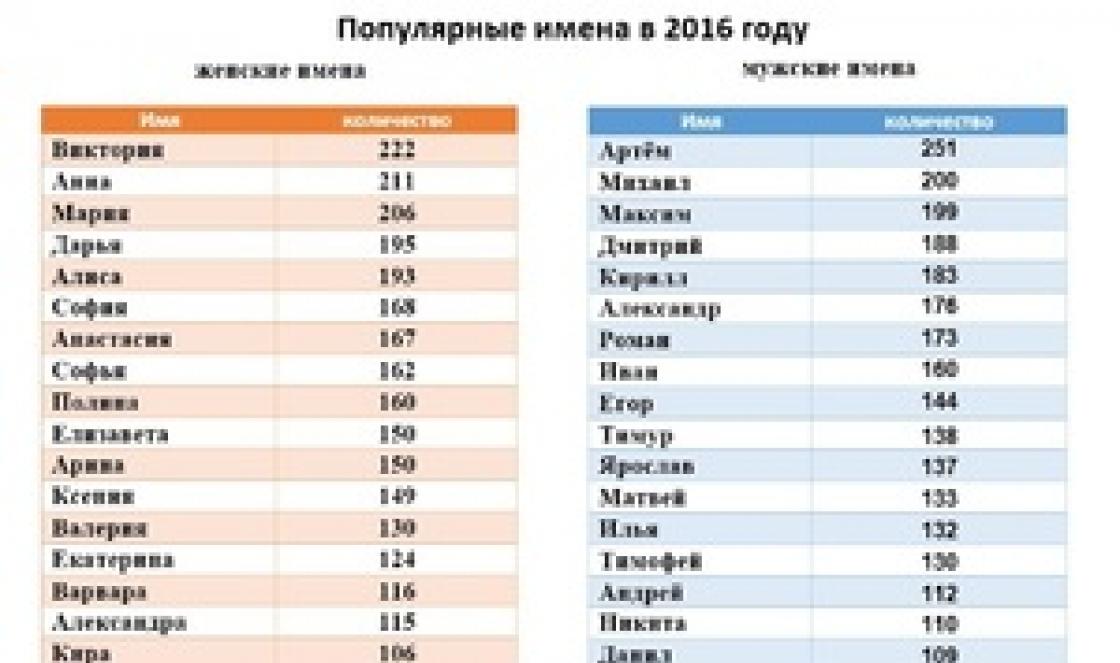Recently, the world celebrated a wonderful event - Mother's Day, and with it - a day of love, warmth and emotional support that we receive from the closest person in life. Did you know that many mothers are real genetic mutants?
Did you know that many mothers are real genetic mutants? In fact, even the brain itself changes during the process of motherhood. It may sound like your mom turned into an X-Men movie, but believe me, there's science behind it.
Mother's genetic background
Pregnancy changes the body, but stretch marks on the skin also bring with them a real miracle. It turns out that small parts of the child remain in the mother’s body for many years.
This phenomenon is called microchimerism. The blood flow of mother and child is separated by the placenta, but many embryonic cells overcome this barrier and settle in the mother's body. Scientists have discovered that these cells can live for many years and even decades. Their role, if any, remains a mystery. But in 2012, an experiment confirmed that DNA from a child’s cells can even settle in the mother’s brain.
You changed her brain
Experiments on rodents have shown that offspring change the mother's brain. Pregnant female rats develop new neurons associated with the sense of smell. Perhaps this is necessary in order to better recognize your children using smell. These changes remain with the mother for life.
The human brain is also subject to changes associated with pregnancy. Thus, British scientists recently discovered that, looking at photographs of the faces of children and adults with various emotions, pregnant women use the right hemisphere of the brain more often than young mothers. The effect was most pronounced when pregnant women looked at happy faces. The change may be due to the fact that after birth a close attachment is formed between mother and child.
Earlier research suggests that pregnant and new mothers become better at recognizing facial expressions and related emotions, and such changes in the brain may be linked.

Perhaps it helped in your personal life
A warm and close relationship with your mother in childhood foreshadows strong love relationships in later life. Maternal assistance in romantic relationships can also be traced among certain animal species. Thus, in 2010, scientists discovered that male bonobos, standing on the lower steps of the hierarchical ladder, are more likely to have sex when their mother is nearby. Moreover, mothers perform intermediary functions, allowing sons into their social circle and even driving away male competitors.
Feeling lonely? Don’t despair, because a strong relationship with your mother helps children find friends.
The cause of your mom's obsessive-compulsive disorder is you.
If the mother seems to worry a lot, then this is not just fantasy. It turns out that the child can cause obsessive-compulsive disorder in the mother.
Researchers at Northwestern University in the US studied new mothers when their babies were between 2 and 6 months old, and as a result, 11 percent of participants showed severe symptoms of this mental disorder, namely a fear of bacteria or an impulsive desire to check the radio over and over again. babysitter In comparison, only 2-3 percent of people generally suffer from this syndrome.
In extreme cases, these symptoms can be harmful, the researchers write. But some anxiety is obviously normal and acceptable, after all, taking care of a newborn is serious work. An increase in the syndrome may be the result of stress or postpartum hormonal levels.
Her voice has power
You knew your mother's voice even before birth. A recent study at Queen's University in Canada showed that listening to a poem written by the mother caused the fetal heart to beat faster than hearing the same poem read by a stranger. The experiment was carried out in the third trimester of pregnancy, when the children were almost ready to be born.
Another study, conducted at the University of Montreal in Canada, found that the brain of a newborn is as sensitive as the heart of an embryo. When a mother makes a short "A" sound, the left hemisphere of the newborn's brain is activated, whereas when the sound of a stranger's voice is heard, the right hemisphere reacts. The right side of the brain is associated with voice recognition, while the left is associated with language and motor abilities. In this way, the mother's voice can lay the foundation for the child's first words.
The mother's vocal superpowers continue to play a role over time as the child grows older. Thus, a mother’s voice, like a real hug, relieves stress in older children by reducing the level of the hormone cortisol and increasing the level of oxytocin, which is responsible for love and affection.
— international holiday in honor of all mothers. This holiday is different from the International women's day because on this day it is customary to congratulate only mothers and pregnant women, and not all females.
- For the first time, the official holiday of a woman-mother appeared in the United States.
- In most countries around the world, Mother's Day is celebrated on the second Sunday of May.
- In Russia, the holiday has been officially celebrated since 1998 and is celebrated on the last Sunday of November.
- In the United States alone, 122 million phone calls are made to moms to wish them a Happy Mother's Day.
- Leaders: cards and flowers, going to a restaurant, jewelry, clothes, gift cards and trips to SPA centers, books, home comfort items and even gardening tools.
- Every year, about $14 billion is spent around the world on Mother's Day.
- The symbol of Mother's Day in Russia is the forget-me-not.
- In Russia there are three awards for women - the Medal of Motherhood, the Order of Maternal Glory and the Order of Parental Glory.
History of Mother's Day
In 1907, a young American woman, Anna Jervis, lost her mother. After this event, she felt that it was necessary to ensure that all mothers in the country received their own holiday, a memorable day on which their children and other loved ones would honor them. Anna managed to find like-minded people, and a few years later the efforts of activists bore fruit - in 1914, US President Woodrow Wilson declared the second Sunday in May a national holiday in honor of all American mothers.
Mother's Day in Russia
In Russia, the holiday Mother's Day was established in 1998 and by decree of the head Russian Federation its date was determined to be the last Sunday of November, but the first time it was celebrated 10 years earlier. Its author was Elmira Javadovna Huseynova, a teacher of Russian language and literature from the city of Baku. Thanks to her initiative, a festive concert was prepared to mark this wonderful date for the first time. The good tradition was picked up by many schools in the country, and gradually the holiday became nationwide.
Mother's Day around the world
IN different countries this day falls on different dates. Mostly, Mother's Day is celebrated around the world on the second Sunday in May, including in Ukraine, Estonia, USA, Malta, Cyprus, Denmark, Finland, Germany, Italy, Turkey, Australia, Japan, Belgium, Brazil.
Mother's Day in Egypt is March 21, in Belarus - October 14, in Georgia - March 3, in Armenia - April 7. In the Republic of Kazakhstan, Mother's Day is celebrated on the third Sunday in September, in Kyrgyzstan on the third Sunday in May, in Great Britain on the first Sunday in March, in Greece on May 9, in Poland on May 26.
Some peoples have celebrated this day since time immemorial: for example, the ancient Greeks paid tribute to Gaia, who was considered the mother of all gods. For three days in March, the Romans celebrated another mother of the gods - eastern Cybele. For the Celts, such a goddess, personifying the mother, was Bridget. In Great Britain, Mother's Day has been celebrated for four hundred years - since the 17th century.
In medieval Europe, children were still early age Usually they were sent to work far from their father’s house. The money they earned was sent to family budget. Of course, both parents and children were bored in this forced separation. Therefore, in England, once a year a day was appointed when you could go home to your family and spend this day with them. Children brought small gifts to their mothers and grandmothers - fresh eggs, bouquets. This day was full of joy and had quite a festive atmosphere.
The feeling of celebration was complemented by a special simnel cake, which was called “mother’s cake” and was prepared according to a special recipe. Nowadays it is often baked for Easter.
Of course, not all families could afford to bake a cake, but everyone tried to pay extra attention to their mother on this day.
Today, both in the UK and in many other countries of the world, the hashtag #mothersday (in Russia - #mother's day) is extremely popular. Social network users post photos with congratulations and wishes a week before the holiday.
But let's return to history and interesting traditions, dedicated to the Day mother. So, in USA and Australia There is an interesting tradition: when this holiday is celebrated, people pin carnation flowers to their clothes. If the carnation is red, it means that the person’s mother is alive and well, but white carnations are worn on clothes in memory of the mother, who is no longer alive.
Celebrating Mother's Day in Austria It’s very reminiscent of March 8 here: schools hold matinees, children learn poems and make crafts and give their mothers bouquets of spring flowers.
In Italy a traditional gift that children give to their mothers is sweets.
In Canada There is a custom of preparing breakfast for mom, bringing it to bed, giving flowers and small symbolic gifts. Also, on this day, mothers and grandmothers are freed from the traditional duty of washing dishes - their children and grandchildren happily do this for them.
The Maltese have been celebrating Mother's Day since time immemorial. Historians believe that the tradition itself originates in the female mysteries ancient Rome, intended to honor the Great Mother - the goddess, the mother of all gods.
In Finland Mother's Day began to be officially celebrated in 1927 on the second Sunday of May. On this day, flags are hung, children prepare gifts for mothers, and fathers try their best in the kitchen on this day, each to the best of their abilities and capabilities. Grandmothers are also congratulated.
The history of the origin of this holiday in the USA is interesting. In 1872, the famous pacifist Julia Ward Howe proposed celebrating Mother's Day as a symbol of mothers' unity for world peace, but her concept did not find support. This was achieved in 1907 by another American, Anna Jarvis, who was so grieved after the death of her own mother that she decided to organize a day of remembrance for mothers throughout America. Anna acted decisively: she wrote letters to many government agencies and legislative bodies in order to convince everyone of the need for such a holiday.
Three years later, Virginia became the first state to recognize Mother's Day as an official holiday. In 1914, US President Woodrow Wilson declared that every second Sunday in May would henceforth be designated a national holiday in honor of all American mothers.
Immediately after the United States, the second Sunday of May was declared a holiday by 23 countries around the world (Australia, Ukraine, Estonia, Oman, Singapore and others).
Mother's Day in Russia began to be celebrated relatively recently - since 1998. According to the decree of Russian President Boris Yeltsin, this holiday is celebrated on the last Sunday in November.
If you want to congratulate your mom, but don’t know how to do it, just say one of these phrases: 1. I love you! 2. You taught me a lot. 3. I want to be like you. 4. I am proud that you are my mother. 5. Do you remember how you played with me as a child... (played, read)? I will never forget this. 6. I know how difficult it was for you, but despite this you were able... 7. You - best mom in the world! 8. You are the most beautiful! 9. If I were born again, I would still choose you as my mother.
Tell us if Mother's Day is celebrated in your family.
Mother's Day in Ukraine
In Ukraine, the celebration of Mother's Day, which takes place on the 2nd Sunday of May, is not yet so common. And I want people to remember this day, so that at least once a year they forget about their business and devote their attention to their dear and beloved mothers. And to attract interest in this holiday, we offer some interesting facts. A best gift for the mother, these are, of course, flowers that can be thrown at floristik.ua.
Historical facts about Mother's Day:
- According to Greek mythology, were carried out spring holidays in honor of the mother of the goddess - Rhea. She was the wife of Kronos and the mother of many deities.
- In 250 BC. The ancient Romans celebrated a spring festival called Hilaria. It is dedicated to the mother goddess named Sibyla. Her followers made offerings at the temple, held parades, games and masquerades. The celebration lasted three days.
- In England during the 15th century, Mothering Sunday was celebrated on the fourth Sunday of Lent. It began with a church service in honor of the Virgin Mary, and after that the children congratulated their mothers with a bouquet of flowers.
- Anna Jarvis is the woman who defined traditional understanding Mother's Day and celebration on the second Sunday of May. Anna did not have children, but in memory of her mother, and what every mother does for a child, she put forward a proposal for this holiday. Anna campaigned tirelessly and on May 8, 1914, American President Wilson signed a joint agreement, which designated the second Sunday in May as Mother's Day.
Flowers for Mother's Day
Of annual flower sales, a quarter occur on Mother's Day. Carnations are a popular choice of flowers for Mother's Day in Western religious society. Since they are believed to have appeared from the tears of Jesus' mother (Mary). Research and experiments show that presenting a bouquet of flowers or flowers in a pot not only aesthetically pleases mothers, but also has a positive effect on health and psychological well-being.
Fun facts:
- In the vast majority of languages in the world, the word "mother" begins with the letter M.
- In the United States alone, 122 million phone calls are made to moms to wish them a Happy Mother's Day.
- What gifts are common on Mother's Day? Leaders of this day: cards and flowers, going to a restaurant, jewelry, clothing, gift cards and trips to SPA centers, books, CDs, home comfort items and even gardening tools.
- About $14 billion is spent on Mother's Day.
How Mother's Day is celebrated around the world:
- In Australia, children bathe their mothers with flowers and gifts. In addition, children pay respects in honor of grandmothers and other women who are important to them. On this day in Australia, mothers are pampered from the heart, breakfast is prepared in bed, gifts and cakes are presented.
- In Italy traditional gift- sweets.
- Children in Finland even raise a special flag in honor of Mother's Day, and dads work as hard as they can in the kitchen.
- In Spain, this day is celebrated on the eighth of December. Ritual services are held in churches in honor of the Virgin Mary.
- Mother's Day in Austria is reminiscent of March Eighth in Ukraine - children prepare performances for mothers, and schools hold matinees.
No matter what part of the world you live in or what culture you belong to, paying attention to your mom on Mother's Day is the greatest gift you will give her. Take time on this day to let your mother know that you love, respect and appreciate her. If you don’t want to limit yourself to one call with congratulations, then order a bouquet for delivery throughout Kyiv and throughout Ukraine. Find out more about Mother's Day gifts
Culture
Every year, every second Sunday in May, the United States and many other countries around the world celebrate Mother's Day. On this day it is customary to congratulate mothers and pregnant women. For the first time in America, the initiative to celebrate Mother's Day was taken by Anna Jarvis, who wrote letters to government agencies and legislative bodies with a proposal to set aside one day a year to honor mothers. Anna Jarvis herself had no children. Subsequently, she was very upset by the "commercialization" of this holiday: the use of Mother's Day to advertise and sell various products, as well as for other commercial purposes.
Motherhood is an amazing condition, familiar to almost every woman.
However, even women themselves do not know some interesting facts about motherhood.
1. The word “mother” was invented... by the children themselves!
The word "mother" sounds the same or very similar in almost all languages. Both Russian, Spanish, and Chinese children call their mother the same way - mom. English-speaking children say "mom" - "mom". Amazing, isn't it? The secret is that the children themselves chose what to call their mothers. One of the first syllables a child pronounces is the syllable "ma". That is why in almost all languages of the world this syllable is used in the word meaning “mother”.
2.We can stay in mom for a long time
The woman carries the baby under her heart for nine months, and then the baby is born and the obstetrician cuts the umbilical cord. Do you think this is where the physical connection between mother and child ends? Not at all. During pregnancy, the mother and baby exchange cells through the placenta. Sometimes these cells remain in the mother’s body for a long time; they can be detected even several years after birth. During one of the studies, geneticist Diana Bianchi from Tufts University discovered cells from her 27-year-old son in the body of one woman! Science does not yet know how the child’s cells affect the mother’s body. However, some researchers suggest that these cells may both provoke autoimmune diseases and protect against these diseases.
3. Motherhood changes a woman's brain.
A 2011 study found that pregnancy can cause changes in a woman's brain. Scans have shown that the brains of women who have recently given birth contain increased amounts of gray matter for four months after giving birth. In addition, scientists conducted experiments on rats and found that pregnancy provokes the growth of special cells associated with the sense of smell in the rodents’ brains. Some scientists suggest that changing hormonal levels may trigger permanent changes in a woman's brain, just as hormones produced during adolescence contribute to the development of teenage brains.
4.The portrait of the mother changes
The world is changing and mothers are changing too. While in 1976, 90 percent of American mothers gave birth before entering the 40 to 44 age group, by 2010 that figure had dropped to 80 percent. Additionally, the researchers found that mothers became more educated between 1990 and 2008. It was also found that during this period there was a decline in the number of two-parent families, that is, the number of single mothers increased. In addition, the researchers report that during this time there was an increase middle age, in which women become mothers. Compared to 1990, the number of women giving birth between the ages of 35 and 39 increased by 47 percent. IN age group From 40 to 44 years old, this figure became even more impressive: the birth rate in this age group increased by 80 percent in 18 years! At the same time, the annual birth rate (about 4.3 million newborns per year) remained the same.
5. In ancient times, mothers asked goddesses for help
And today, many pregnant women and mothers turn to religion for help. This was even more common in ancient times. In many ancient religions, there were special deities who protected women during pregnancy and childbirth. For example, in 2001, during excavations, scientists discovered a stone with the image of Hartor, a goddess with the head of a cow, who was considered the patroness of women in childbirth. Ancient Egyptian women sat on this stone during childbirth. The ancient Greeks had many other deities - patrons of pregnant women and women in labor. A pregnant woman and mother of a newborn feels defenseless. It is not surprising that women in this state turn to God for help.





